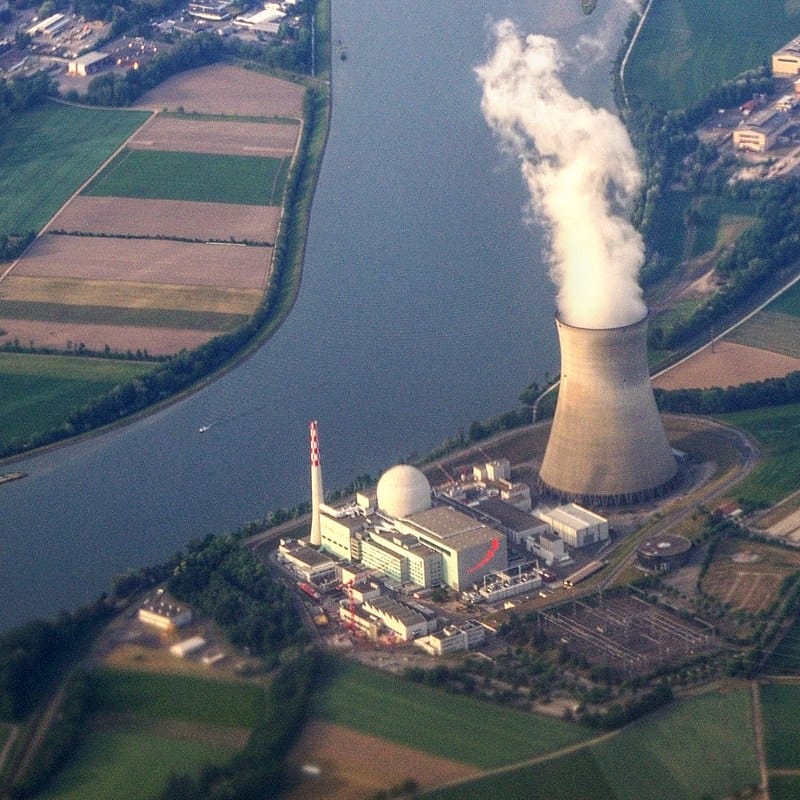
Nuclear Power
Nuclear power is the use of nuclear reactions to produce electricity. Nuclear power can be obtained from nuclear fission, nuclear decay and nuclear fusion reactions. Presently, the vast majority of electricity from nuclear power is produced by nuclear fission of uranium and plutonium in nuclear power plants. Nuclear decay processes are used in niche applications such as radioisotope thermoelectric generators in some space probes such as Voyager 2. Generating electricity from fusion power remains the focus of international research.
Civilian nuclear power supplied 2,586 terawatt hours (TWh) of electricity in 2019, equivalent to about 10% of global electricity generation, and was the second-largest low-carbon power source after hydroelectricity. As of September 2021, there are 444 civilian fission reactors in the world, with a combined electrical capacity of 396 gigawatt (GW). There are also 53 nuclear power reactors under construction and 98 reactors planned, with a combined capacity of 60 GW and 103 GW, respectively. The United States has the largest fleet of nuclear reactors, generating over 800 TWh zero-emissions electricity per year with an average capacity factor of 92%. Most reactors under construction are generation III reactors in Asia.
Nuclear power has one of the lowest levels of fatalities per unit of energy generated compared to other energy sources. Coal, petroleum, natural gas and hydroelectricity each have caused more fatalities per unit of energy due to air pollution and accidents. Since its commercialization in the 1970s, nuclear power has prevented about 1.84 million air pollution-related deaths and the emission of about 64 billion tonnes of carbon dioxide equivalent that would have otherwise resulted from the burning of fossil fuels.
Accidents in nuclear power plants include the Chernobyl disaster in the Soviet Union in 1986, the Fukushima Daiichi nuclear disaster in Japan in 2011, and the more contained Three Mile Island accident in the United States in 1979.
There is a debate about nuclear power. Proponents, such as the World Nuclear Association and Environmentalists for Nuclear Energy, contend that nuclear power is a safe, sustainable energy source that reduces carbon emissions. Nuclear power opponents, such as Greenpeace and NIRS, contend that nuclear power poses many threats to people and the environment.
Lists containing Nuclear Power :
25 Best Inventions of 20th Century

The Best Inventions of the 20th Century: During the hundred years of the 20th century, technology, science, invention and re-invention progressed at an accelerated pace than in any other century. We started the 20th century with the infancy of the airplane, the automobile, and the radio, when those inventions amazed us with their novelty and…
